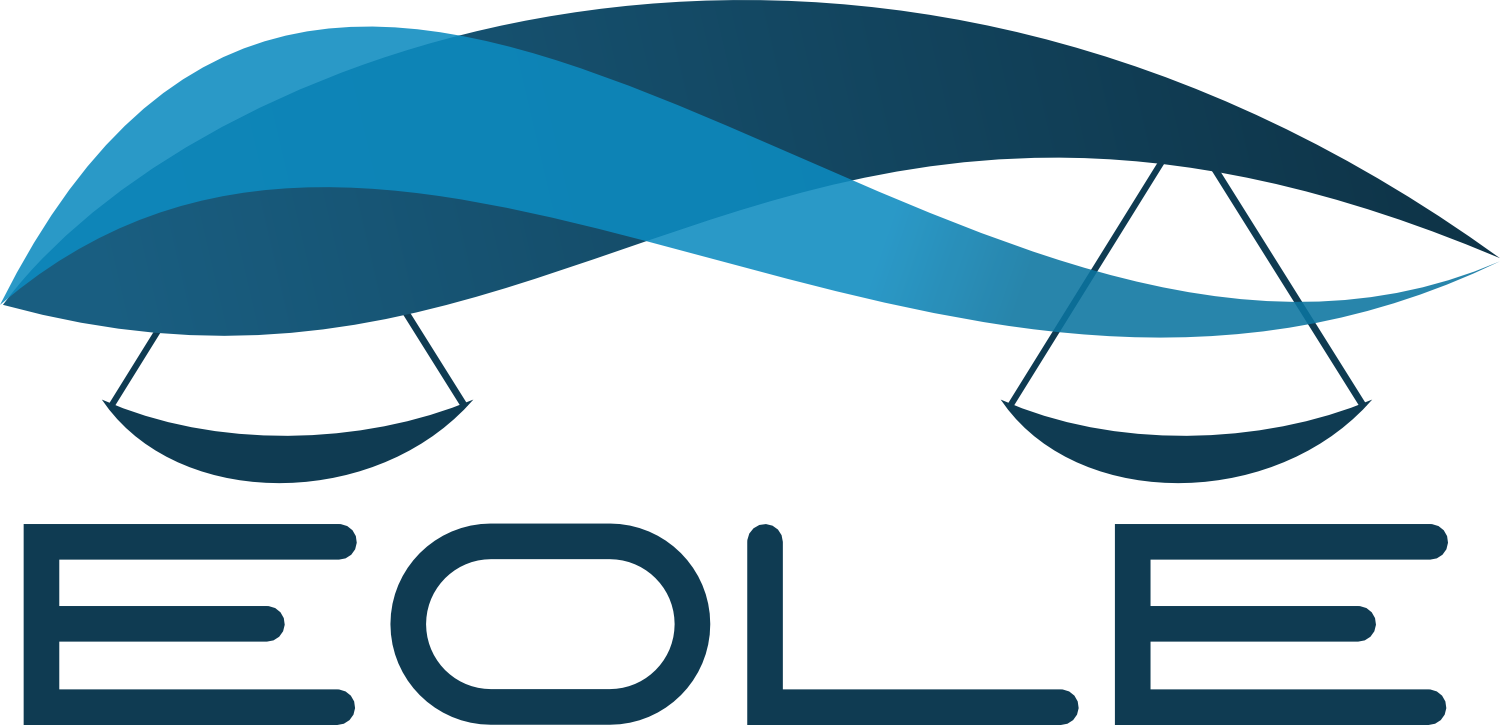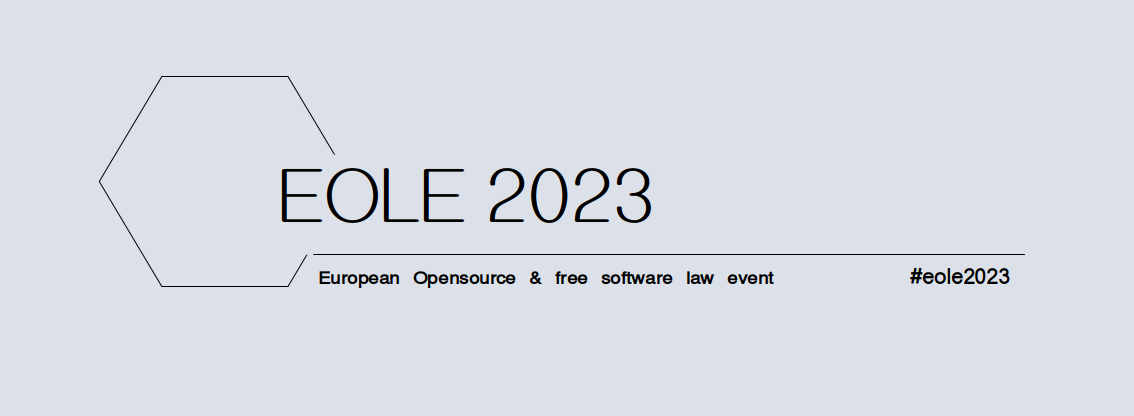International annual conference cycle, the European Open Source & Free Software Law Event (EOLE) aims to promote the share and dissemination of legal knowledge related to free software, as well as the development and promotion of good practices. Initiative born in 2008 from practitioners’ needs, EOLE has for purpose to develop a legal doctrine dedicated to the dissemination of neutral and qualitative information. This year, the event has been divided into 3 webinars and took place from May 2023 to September 2023. The event ended with an in person event the 7th of December in Paris, France hosted by Open Source Experience event.
2023 Main theme was « Open Source Compliance through open & shared approaches »
Abstract
Moving from community issues to corporate approaches, efforts to respect Open Source licenses have gradually shaped to strict Open Source compliance policies amongst organizations. With its subtle but nonetheless real differences, this compliance is part of the wider field of regulations whose implementation is the responsibility of legal (or compliance) and digital teams. Despite its relative youth and the technical and legal skills required, Open Source compliance has the specificity to be considered by taking account of the decentralized functioning of Open Source on the one hand and social, ethical and economic issues on the other hand.
Following the growing adoption of Open Source within organizations, the last ten years have seen a professionalization and industrialization of compliance processes. Involving lawyers, developers, compliance officers or any cross-functional functions, more and more tools, frameworks, and initiatives have emerged to provide solutions tailored to the individual needs of each organization. Nevertheless, the systemic and global dimension of Open Source has not been a primary focus in recent years, and it is this link between localised compliance processes and their global counterparts that we propose to examine this year within EOLE. The strength of a collectively and globally defined vision of Open Source compliance (in both legal analysis and technical implementation) – without certifying or standardizing everything – will have a major effect on the definition of individual strategies. However, for this to happen, it is necessary for all the stakeholders involved to talk to each other and work together.
The aim is to understand the issues and procedures involved in moving to a shared approach on a global scale. To think in terms of synergies, mutualization or at least convergences between the different communities mobilized on these subjects. It also means questioning the specific modalities and the needs of such a compliance by taking into account the purposes intrinsically linked to Free and Open Source Software (FOSS). It is indeed unthinkable to consider that Open Source compliance should be designed without integrating the ethical issues, inclusion, and appropriation by the end users. Finally, it is necessary to consider the links that this compliance allows to be established between users, contributors, and maintainers of Open Source projects: to understand how the development of Open Source compliance can bring individuals and communities together and strengthen them without weakening or dividing them.
The 2023 edition of EOLE alternated between a series of thematic workshops (available by video-conference and/or locally in Paris, Barcelona and Turin) mixing legal and technical approaches to Open Source compliance and a synthesis day at the end of 2023 in Paris. The aim, this year, was be to draw on examples of concrete projects and scientific work demonstrating that open compliance can be – and indeed should be – accessible to all.
Workshop 1 : Getting lawyers to work together in an Open Source compliance approach
Details
- 22 May 2023, 10:30, Paris, France and online
- You can pursue the discussion on our forum
Workshop 2 : Open Source Compliance in research and academia: what can they contribute?
Details
- 28 June 2023, 15:30, Barcelona, Spain and online
- You can pursue the discussion on our forum
Workshop 3 : Open Source legal compliance and public administrations
Details
- 21 September 2023, 10:00, Turin, Italy and online
- You can pursue the discussion on our forum
Plenary session : Conclusion of this 14th editions
Details
- December 7th, in Paris, France, during Open Source Experience 2023 event
Program
- From 13:30 to 14:00 – Welcoming with coffee and tea
- From 14:00 to 14:10 – Introduction and context of the event
- From 14:10 to 15:00 – Getting lawyers to work together in an Open Source compliance approach by Benjamin Jean (inno³) and Laura Weber (OVHcloud) for Hermine-FOSS project
- From 15:00 to 15:50 – Open Source Compliance in research and academia: what can they contribute? by Malcolm Bain (Across Legal) and François Pellegrini (The Committee for Open Science)
- From 16:10 to 17:00 – Open Source legal compliance and public administrations by Marco Ciurcina (Sutdiolegale.it), Laura Garbati (CIS Piemonte) and Gijs Hillenius (European Commission)
- From 17:00 to 18:00 – Discussion and conclusion

